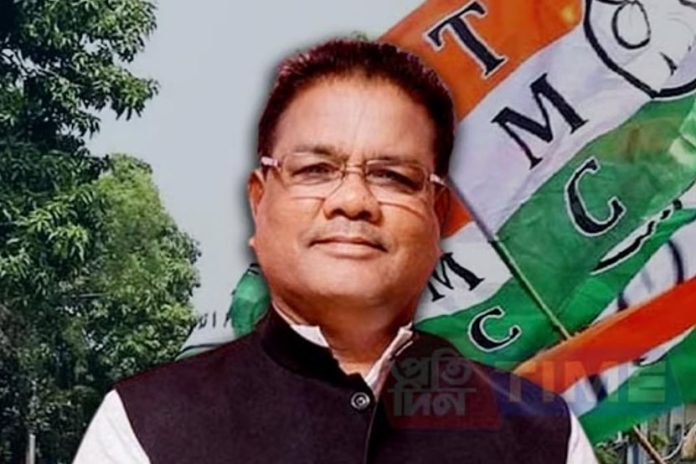By Ashis Biswas
KOLKATA: For the Trinamool Congress (TMC), troubles continue unabated at the national level apart from West Bengal. . Universally condemned over the unfortunate rape and death of a young lady doctor at a Government-run Kolkata hospital, the TMC has suffered a further loss of face over the resignation of its state president in Assam, the veteran Mr Ripun Bora.
Mr. Bora’s decision to quit along with a few Assam TMC followers was not quite unexpected. His parting words of explanation carried several unpleasant home truths, which his instant replacement and successor, Ms Susmita Dev would be well advised to heed, say observers.
The Kolkata-based TMC ‘leadership’ — meaning the old familiar duo of party supreme Ms Mamata Banerjee and her MP nephew Abhishek Banerjee — responded to the setback predictably. The TMC lived up to its image of a party that would never be seen as ‘out’ even if it is ‘down’, so to speak. Ms Susmita Dev, Rajya Sabha MP was immediately announced as the new state leader in Assam
The choice was not surprising. Ms Dev boasts of an Assamese background, an important fact in Northeast politics, with her family roots in Silchar, Cachar valley. She had been actively engaged with state politics in Tripura as well for years, during her long years with the Indian National Congress. She joined the TMC as the INC’s fortunes waned.
Ms Banerjee rewarded her well for the shift, sending her to the Rajya Sabha— Ms Dev had helped her cut down the INC in the northeast!
In the process, Mr Bora, himself a former veteran Congress leader and a Rajya sabha member, felt sidelined, not without reason. After joining the TMC, he had initiated steps to make the Bengali-dominated TMC acceptable to predominantly Assamiya voters in the Northeast region.
As Mr Bora explained to TMC General Secretary , the young Mr Abhishek Banerjee in his final communication , it had proved very difficult to persuade the average Assamiya or non Bengali voters to view the TMC as anything other than a regional party, based in and functioning out of, West Bengal. The party seemed to be far too busy in protecting the interest of the Bengali-speaking people in Assam and elsewhere, especially on issues relating to citizenship, etc.
Now Indian citizenship for Assam and other states, remains a highly emotive issue, given the inter-racial and ethnic tensions that prevail in the NE states for historical reasons.
Nevertheless, Mr Bora had outlined specific moves that could help in getting some new/fresh support among Assamiyas for the TMC. In his letter to Mr Banerjee he mentioned his old suggestion that the late Bhupen Hazarika’s south Kolkata residence could be officially taken over or handed over to the Assam Government as a cultural centre in honour of the highly popular musician/composer. Similarly, West Bengal Government could initiate similar steps to take over/help run some old traditional cultural centres in lower Assam.
Such gestures on part of the TMC Government, it was felt, would have gone a long way to help improve relations between Assamiyas and Bengalis. They would have generally helped the TMC’s expansion in Assam without necessarily involving much financial involvement.
Sadly enough, Mr Bora’s suggestions were never seriously considered by the TMC Government. He received no reply to his suggestions.
Bengal-based observers are not surprised. They feel Mr Bora’s main grievance that the TMC was seen primarily as a political force championing the Bengalis, not any other interest, in the Northeast, as substantially correct. They refer in particular to the TMC’s desperate move to send its MPs and other leaders including Ms Mahua Moitra on a special flight to Assam to protest against the alleged harassment of Bengalis in parts of Assam. This was when Mr, Sarbananda Sonowal was the Chief Minister.
The Assam government responded by holding the TMC MPs and other leaders within the airport premises, before packing them off to a Kolkata-bound flight at the earliest, to prevent further tensions and eruption of violence.
Nor was this the only instance of the TMC attempts to interfere in developments within Assam. The majority of the TMC’s statements on Assam developments were generally protests against the state’s measures taken against the ‘Miyan Muslim” (Bengali Muslim), community, their sufferings in citizenship and related issues. There were hardly any apparent involvement with the local economic problems or issues relating to social development of other communities or groups!
Seasoned observers feel, for Ms Dev to succeed where Mr Bora had failed to persuade the TMC leaders to focus more seriously into Northeast matters rather than on Bengal-related issues, she would need to learn from his experience. The TMC, despite proclaiming itself as the All India Trinamool Congress, had functionally remained a West Bengal based entity. ‘True, it has five or so MLAs in the Meghalaya Assembly. But given the style of politics in the NE states, that could change tomorrow over this or that issue,’ said one observer.
To his credit, Mr Bora had not added insult to the TMC’s injuries: take the TMC’s pro-Bengali bias, as commonly perceived: During the last Lok Sabha polls, the TMC had put up its own candidate at Silchar parliamentary seat, following an understanding with its INDI partners. (It had contested four out of 13 seats in Assam).
In this Bengali-dominated Silchar constituency the TMC had won only 20493 votes — and that, after a hectic, highly expensive pre-election campaign involving the expenditure of millions of rupees! ‘Apparently, Bengalis especially those residing out of West Bengal, do not necessarily support the TMC, any more than Assamiyas, Bodos or Karbis,’ says an observer.
Therefore, as the TMC’s new face in Assam, Ms Dev has to find out why this is so and must find a solution. She has her work cut out, for sure. (IPA


